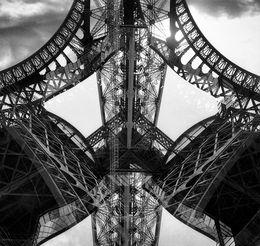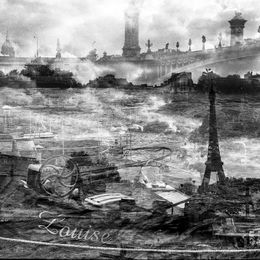
Presentation
After a degree in mathematics, in 1974 Paul Khayat left for a trip around the world that would last 3 years.
On his return, he worked as a printer in the laboratory of the Sipa then Sygma agencies, which he left to try his luck as a photographer.
In 1984, after six years of photo reporting (freelance, Imapress and Angeli agencies) he moved on to writing and worked as a journalist in several magazines devoted to photography (Photo Reporter, Photo Magazine, Photographies Magazine and finally Photo for 9 years ).
Then, from 1999 to 2016, he was editor of the high-tech sections of Paris Match.
At the same time, he returned to photography and exhibited his images in Normandy and Paris as well as on Facebook and Instagram. For 6 years he has been working exclusively in film with a Rolleiflex for which he develops the films himself.
A lover of black and white and double exposure, Paul Khayat looks at Paris through the square viewfinder of his case. His timeless images of the City of Light capture its most intimate identity. Made of stone or iron, the urban landscape communicates with the sun, the night and History.



Pont Alexandre III
Paul Khayat
Photography - 40 x 40 x 1 cm Photography - 15.7 x 15.7 x 0.4 inch
$561




Basilique Sacre coeur
Paul Khayat
Photography - 60 x 60 x 1 cm Photography - 23.6 x 23.6 x 0.4 inch
$954

Cimetière Pere Lachaise
Paul Khayat
Photography - 40 x 40 x 1 cm Photography - 15.7 x 15.7 x 0.4 inch
Sold

Discover our selections of works by artists
What are their 3 main works?
